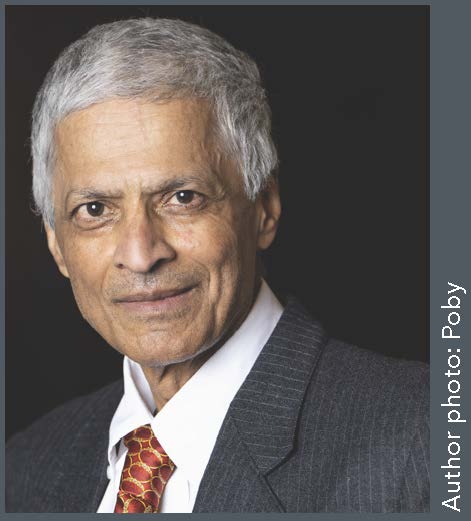Uncertainty and Enterprise
FLAP COPY | TABLE OF CONTENTS| ADVANCE COMMENTS | SELECTED PRESS (TK)

Why write this book?
For nearly forty years, I have struggled to reconcile the concrete phenomena I studied and taught about with the theories and methods of academic colleagues. Where I focused on specific entrepreneurs, financiers, and technological advances, colleagues examined what generally happened – describing and explaining ‘distributions’ rather than ‘one-offs.’
Where I attended to human hopes, fears, and colorful discourse, scientifically-minded colleagues treated these as noise. Individual human agency and construction of meaning had no role in theories predicated on mechanistic (if sometimes biased) responses to external circumstances. Likewise my narrative-mode reasoning (as Jerome Bruner calls it) about one-offs horrified enforcers of logico-scientific methods designed to analyze recurring events.
Yet, mapping one-offs also requires a system of latitudes, longitudes, and elevations.
Frank Knight’s century-old construct of uncertainty has long provided the coordinates for my maps. Starting in the early 1990s, I used it to analyze many specific cases and issues, especially in entrepreneurship and finance.
This did now, however, make my case-based research more academically respectable.
In 2000, I made Knightian uncertainty the organizing premise of The Origin and Evolution of New Businesses. Catchy stories and some summary data attracted attention, but not its Knightian framing.
This is my final effort. Covering some of the same territory as I did in the Origin book, it has a much stronger emphasis on uncertainty including a novel examination of imaginative uncertainty-reducing discourse. (By happenstance, both books coincided with manias – the Internet in 2000 and now Artificial Intelligence. And although I didn’t write either to challenge the claims underpinning the manias, this book, like its predecessor, implicitly does just that: it questions the value of statistical models in making predictions about the effects and products of imaginative human enterprise.)
TOP | TABLE OF CONTENTS| ADVANCE COMMENTS | SELECTED PRESS (TK)
Flap Copy
Uncertainty – doubt about what is or could be – fuels our ambitions and fears. Tantalizing possibilities spur us to innovate and explore. Yet, we also strive to reduce uncertainty. Mountain climbers and deep-sea divers plan carefully. Rules, routines, and research in business, the law, and medicine are designed to increase predictability and forestall unpleasant surprises.
Mainstream economics, however, hides from uncertainty, banishing it to the mystical world of unknown unknowns or reducing it to mechanistic calculation. Its textbooks ignore everyday problems that lack demonstrably correct solutions. But resolute responses to such problems require confidence. Where does confidence come from, especially when we go beyond the known? How do we justify our fallible judgments to ourselves and others?
Drawing on more than thirty years of teaching and research, Amar Bhidé offers compelling answers. Inspired by – while modernizing — the forgotten ideas of the economist Frank Knight and other great twentieth-century thinkers, Bhidé challenges both hyper-rational economic orthodoxy and claims of pervasive behavioral biases. He shows that while big bets require more justification, the facts alone don’t persuade skeptics. Instead, narratives that combine reason, contextual evidence, and creative interpretations align our imaginations.
Bhidé’s framework and rich examples explain neglected and surprising features of entrepreneurship. He shows how startups and giant corporations coexist; how seemingly bureaucratic procedures encourage the giants to undertake complex high-stakes initiatives; and, how vividly described possibilities help make the imagined real. Cutting through esoteric theories – but avoiding glib prescriptions — Uncertainty and Enterprise examines the foundations of bold yet reasonable action.

AMAR BHIDÉ is a Professor at Columbia University’s Mailman School of Public Health and Professor Emeritus at Tufts University’s Fletcher School. He has served on the business school faculties of Harvard, Chicago, and Columbia universities and was a founding editor of Capitalism and Society. Bhidé has written numerous articles for the Harvard Business Review, The Wall Street Journal, The New York Times, and the Financial Times. Author of The Origin and Evolution of New Businesses and The Venturesome Economy, Bhidé was educated at the Indian Institute of Technology and Harvard Business School, where
he graduated as a Baker scholar.
TOP | FLAP COPY| ADVANCE COMMENTS | SELECTED PRESS (TK)
Table of Contents
Preface
PART I: INVITATION TO THE VOYAGE
1. The Offering
2. Uncertainty as Doubt
3. Conjectures about Justification
4. Applications to Enterprise
PART II: FORMIDABLE OBSTACLES, FORGOTTEN BEACONS
5. Frank Knight: The Spark That Did Not Ignite
6. Practically Omniscient Microeconomics
7. Imperfect Market Theories: Realism without Fallibility
8. John Maynard Keynes: Help to Distraction
9. Herbert Simon: Faded Guiding Star
10. Daniel Ellsberg’s Ambiguity: A Simplifying Side Trip
11. Kahneman and Tversky: Gaining Acceptance, Dropping Uncertainty
12. Richard Thaler & Co.: Building the New Behavioral Boomtowns
PART III: THE SPECIALIZATION OF ENTERPRISE
13. Including Uncertainty: Recapitulation and Preview
14. “Bootstrapping” Improvised Startups
15. Calculating Capitalists: VCs and Angel Investors
16. The Evolution of Dynamic Bureaucracies
17. The Dominions of Giants
PART IV: IMAGINATIVE DISCOURSE
18. The Aims of Discourse
19 The Devices of Discourse
20. Stories as Side Dishes
21. Spillovers from Popular Stories
PART V: CODA
22. The Case for Widening
TOP |FLAP COPY | TABLE OF CONTENTS | SELECTED PRESS (TK)
Advance Comments
“In Uncertainty and Enterprise, Amar Bhidé reminds us of the importance of complexity and context in understanding human action. His wide-ranging insights connect contemporary events to timeless themes in a way that is both fresh and engaging.”
—Sir Tim Besley, Professor of Economics and Political Science, London School of Economics and Political Science
“An important book and a wonderful guide for flourishing in a rapidly changing world. Amar Bhidé illustrates how our destiny doesn’t have to be controlled by authoritarian governments or impersonal scientific forces. We can shape our future, by holding true to our hallowed democratic traditions and honoring our best selves.”
—Bill Bradley, US Senator, 1979–1997
“Uncertainty has long been a source of puzzlement—seen by some as central to economic life even as it remains frustratingly difficult to define or analyze. Amar Bhidé cuts through this confusion, providing a lucid journey through both the history of the concept and its ongoing commercial implications. The story he tells is provocative, humane, and always illuminating. Uncertainty and Enterprise will be a definitive resource for anyone
who seeks to understand a big question that yields no easy answers.”
—Angus Burgin, Associate Professor of History, Johns Hopkins University
“A compelling argument for recognizing uncertainty as a key factor in economic analyses, and how to build it into our strategies. This is a magisterial synthesis of forgotten theories, and a persuasive appeal for reform in the economics profession. It offers thought-provoking insights for anyone seeking to navigate our turbulent times.”
—Gillian Tett, Provost, King’s College, University of Cambridge, and Columnist, Financial Times
TOP | TABLE OF CONTENTS| FLAP COPY
